
Weill Cornell’s Dr. Andrew Dannenberg is concerned about us postmenopausal women.
Postmenopausal?
Normal BMI?
Too much friggin’ trunk fat? Continue reading


Weill Cornell’s Dr. Andrew Dannenberg is concerned about us postmenopausal women.
Postmenopausal?
Normal BMI?
Too much friggin’ trunk fat? Continue reading

Read more thoughtful reactions to the new study on author Marion Nestle’s Food Politics blog.
Food writer Marion Nestle “would love to know the back story” behind why university researchers chose to do the recent study on eating meat and chose to interpret the results as they did.
I’ve got a hunch.

Got milk? Got prostate cancer?
Psst, men–and all of you who care about men, growing boys or your own hormonal balance. How’s your DHT? That’s the powerful male hormone driving adolescent acne, then early hair loss, then later in life, Continue reading
 “Again with the onions,” you’re probably screaming. Continue reading
“Again with the onions,” you’re probably screaming. Continue reading
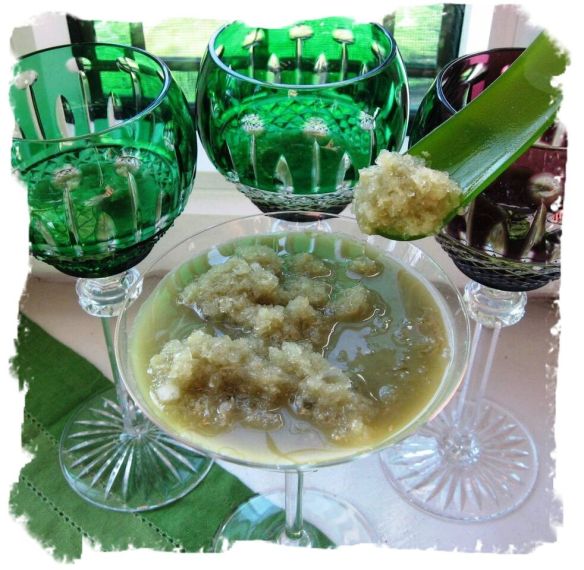 While everyone else is taking to alcohol this Cinco de Mayo, dare to be different with an anti-cancer alternative: frozen matcha-ritas. Here’s the messipe:
While everyone else is taking to alcohol this Cinco de Mayo, dare to be different with an anti-cancer alternative: frozen matcha-ritas. Here’s the messipe: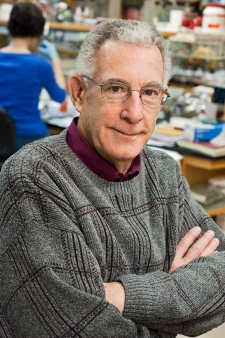
Boston College biology professor Dr. Thomas Seyfried
May 2018 update: The answer to my question at the end of this post is “Yes it seems that you can get into ketosis on a plant-based diet.” Check out Miriam Kalamian and her “Keto for Cancer” book here. Long overnight fasts seem to be a good way to kickstart the process. Lupper, anyone?
For more on the metabolic approach to managing cancer, start with this very short summary of the New York Times’ recent piece. Talk with your oncologist and share Seyfried’s most recent article . Ask your oncologist to contact Seyfried at thomas.seyfried@bc.edu.
Dear Senator,
Meet the Moses of the metabolic movement, Dr. Thomas Seyfried.
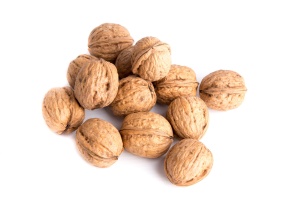 Myricetin may not yet grace your doctor’s anti-cancer tool kit, but put it on your prescription pad. Among all the phytonutrients, it’s what I call “plantastic”– blessed with a chemical structure that works some anti-cancer wonder.
Myricetin may not yet grace your doctor’s anti-cancer tool kit, but put it on your prescription pad. Among all the phytonutrients, it’s what I call “plantastic”– blessed with a chemical structure that works some anti-cancer wonder.
 Today, on World Cancer Day, go out and buy some cancer-fighting plants. Here are some musts for your anti-cancer kitchen: Continue reading
Today, on World Cancer Day, go out and buy some cancer-fighting plants. Here are some musts for your anti-cancer kitchen: Continue reading
 Today, on World Diabetes Day, it’s time to set the record straight: The cause of Type 2 diabetes and its precursor, insulin resistance, is saturated fats. They muck up your cells and the ability of your cells to use insulin.
Today, on World Diabetes Day, it’s time to set the record straight: The cause of Type 2 diabetes and its precursor, insulin resistance, is saturated fats. They muck up your cells and the ability of your cells to use insulin.
Choo choo on that! Continue reading
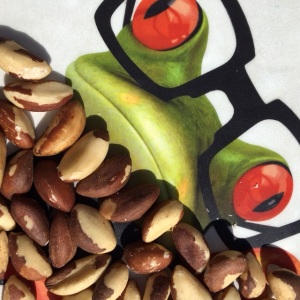 As if Brazil didn’t have enough to worry about, now comes a new study that exposes the shady side of selenium. The selenium in Brazil nuts, it turns out, is not the kind associated with anti-cancer qualities. Continue reading
As if Brazil didn’t have enough to worry about, now comes a new study that exposes the shady side of selenium. The selenium in Brazil nuts, it turns out, is not the kind associated with anti-cancer qualities. Continue reading
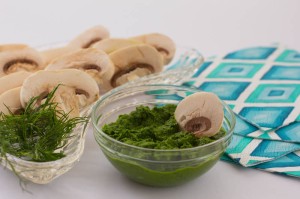 How can such a common mushroom harbor so many anti-cancer qualities?
How can such a common mushroom harbor so many anti-cancer qualities?
Credit its lectins, for starters–
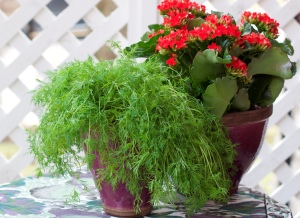
2018 update: For an update on Dr. Thomas Seyfried’s suggestions for treating cancer as a metabolic disease, read his article here or my piece summarizing that article.
Talk with your oncologist about using this approach and ask your oncologist to reach out to Dr. Seyfried at thomas.seyfried@bc.edu.
This week’s New York Times magazine features a story on a theme familiar to all of you readers of this anti-cancer blog : the metabolic approach to starving, or feeding, disease. It singles out insulin and a related hormone, Insulin Growth Factor-1, which we’ve talked about often. And if glucose, glutamine and certain fatty acids drive cancer growth, as the metabolic scientists quoted in the article suggest, then what could be more important than phytonutrients that keep cancer cells from utilizing those fuels? That’s another theme we’ve been addressing. Remember singing the praises of dill? Continue reading
 May 2016 update: C-137 continues to be detected in increasing amounts off the BC coastline, with the west coast of Vancouver island showing the most contamination.
May 2016 update: C-137 continues to be detected in increasing amounts off the BC coastline, with the west coast of Vancouver island showing the most contamination.
Five years after the world’s most recent nuclear disaster, the plume of waters carrying Fukushima’s cesium has started hitting North America’s Pacific northwest. How safe are our fish? Continue reading
 Now that you’re no longer a “Proteinaholic,” how do you go about selecting the most nutritious plants among all those shades of red, purple and green?
Now that you’re no longer a “Proteinaholic,” how do you go about selecting the most nutritious plants among all those shades of red, purple and green?
My first vote goes to “The Mighty Italian Triumvirate,” a combo of Continue reading

How are legumes like sperm? They contain the same anti-cancer and anti-aging elixir.
July 2016 update: A new study in mice and 19 men by longevity researcher Luigi Fontana found that restricting daily protein to 7 to 9 percent of calories improved their metabolic health.
Legumes–beans, peas and lentils — are the #1 key to longevity, says Dan Buettner, the bestselling author who’s been studying the world’s Blue Zones, those pockets of the world (Mediterranean, Japan, California, Costa Rica) where people eating plant-based diets with legumes as their main source of protein are outliving us all.
How might legumes fuel longevity? Could some be more “nutritarian” than others? How much protein should you be eating anyway? And must it be all plants all the time? Continue reading

Chicken’s off the platter if your New Year’s resolutions include restricting methionine–a promising new strategy to fight cancer and forestall aging.
What’s the latest advice that scientists are dishing out for your anti-cancer diet?
Read the backstory first to enhance tonight’s exchanges with loved ones. Continue reading
Note: My apologies. This post failed to clarify all the issues surrounding iodine, thyroid hormone and cancer. Low thyroid function may protect against cancer, so what does that mean for our diets? I’ll be publishing an update as soon as I can get some smart experts to explain all the confusing info out there.
Last week the Environmental Working Group (EWG), a consumer health group, released its handy lists of more than 250 brands of canned foods– -those with and without bisphenol A (BPA), a compound used in plastics and cans that seems to wreak havoc with hormones.
Why wasn’t Eden‘s canned beans on the green list?
Continue reading
 Here’s a sparkling twist on guacamole to share with friends this holiday season and add to your growing repertoire of anti-cancer recipes.
Here’s a sparkling twist on guacamole to share with friends this holiday season and add to your growing repertoire of anti-cancer recipes.
The emeralds include avocado chunks and cilantro; the rubies, red onions and pomegranates. Continue reading
 Let’s jump straight to the top. The #1 most read post this year is–Anti-Cancer Recipes: Should you Cook Onions? So what’s the short answer? Continue reading
Let’s jump straight to the top. The #1 most read post this year is–Anti-Cancer Recipes: Should you Cook Onions? So what’s the short answer? Continue reading
Ready to follow me on Twitter?
You don’t know what a healthy poop is until you’ve added some cranberries to your anti-cancer diet.
Want more health news? Follow me on Twitter.
The first study to examine the effects of certain compounds in peanuts on the spread of cancer is about to be published–and the results show serious consequences for your anti-cancer diet, especially if you have metastatic cancer.
Continue reading
Dear readers: Over the coming weeks, I will attempt to get reaction from various researchers on the soy findings. Stay tuned, talk with your doctor and do what feels right for you. Nobody needs anxiety.
Soy? Did they say soy should be included in an anti-cancer diet? Continue reading
 What kind of turmeric powder should we choose for our anti-cancer kitchens? Continue reading
What kind of turmeric powder should we choose for our anti-cancer kitchens? Continue reading
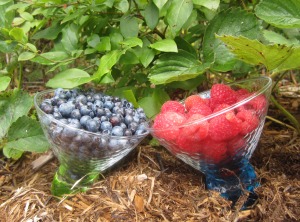 With summer on its way out, it’s time to freeze some of its most nutritious anti-cancer bounty. How to do it? Remember these 3 letters: Continue reading
With summer on its way out, it’s time to freeze some of its most nutritious anti-cancer bounty. How to do it? Remember these 3 letters: Continue reading
 When it comes to anti-cancer strategies, does diet really matter? To what degree? Continue reading
When it comes to anti-cancer strategies, does diet really matter? To what degree? Continue reading
2016 update: Myricetin is one of those magical flavonols that act as anti-oxidants in normal cells but selectively destroy cancer cells. In fact, among the flavonols, it may be tops at targeting cancer cells for destruction.
Put walnuts and their next of kin on your anti-cancer shopping list. And who might that be? Continue reading
2018 Update: For a fascinating look at how milk’s software disrupts key genes and thus drives the uncontrolled cell growth that we call “cancer,” read this interview with German dermatologist Dr. Bodo Melnik as well as his recent publication.
I’ve been reserving judgment on dairy products for 55 years now–since Grade 1, when my mom lied to the school authorities and told them I was allergic to milk. Truth was: it made me gag.
But now that Dr. Walter Willett, chairman of the Department of Nutrition, Harvard’s School of Public Health, and an esteemed panel of scientists have opined on the subject and we’ve had time to reflect, I can say this with certainty about whether or not dairy products have any place in an anti-cancer diet: Continue reading
 Add these to your list of anti-cancer resources: Continue reading
Add these to your list of anti-cancer resources: Continue reading
Have you purchased any of these for your anti-cancer kitchen? Continue reading
 Still struggling to find a simple jicama recipe for your anti-cancer diet? f you read the post on fermentable fiber, you know that Continue reading
Still struggling to find a simple jicama recipe for your anti-cancer diet? f you read the post on fermentable fiber, you know that Continue reading
 If you’ve been following this anti-cancer food blog, you know all about the crucifer dilemma and the recent research solving it: Continue reading
If you’ve been following this anti-cancer food blog, you know all about the crucifer dilemma and the recent research solving it: Continue reading
 How should you go about picking berries for your anti-cancer diet when you can’t get fresh ones from the ‘hood? Continue reading
How should you go about picking berries for your anti-cancer diet when you can’t get fresh ones from the ‘hood? Continue reading
 October 2015 update: Scientists are continuing to identify various food sources of fermentable fiber, including sources of “pre-biotic” fermentable fiber–the kind that provides the healthy bacteria for your gut to ferment. I’ll be updating this list as new studies come out. If you haven’t read through it in a while, you might want to do so.
October 2015 update: Scientists are continuing to identify various food sources of fermentable fiber, including sources of “pre-biotic” fermentable fiber–the kind that provides the healthy bacteria for your gut to ferment. I’ll be updating this list as new studies come out. If you haven’t read through it in a while, you might want to do so.
Just when you thought you could tell the differences among various kinds of fiber, scientists start dishing out a brand new term for our anti-cancer diets: fermentable fiber. Continue reading
 This anti-cancer recipe is like one of those research trials they stop early because the results are just so fantastic. Continue reading
This anti-cancer recipe is like one of those research trials they stop early because the results are just so fantastic. Continue reading Update: The same researchers who’ve found that onions and garlic can increase the bioavailability of zinc in plants have found that the following foods also help: beta-carotene rich vegetables (such as carrots). lime, ginger, red and black pepper.
Yes, a plant-based diet is great for fighting cancer because plants contain all sorts of anti-cancer compounds, but heed the traps: Too much copper and too little zinc, often a result of plant-only diets, can fuel cancer—as well as make you tired. Continue reading
I once heard a geneticist claim that the changes to genes induced by smoking have been traced forward for three generations. Continue reading
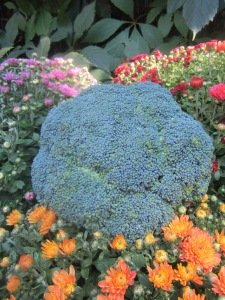 Here’s your 2014 New Year’s bounty: a heads up on what I’m betting will become one of the hottest topics in anti-cancer research– foods and dietary components that can alter cancer stem cells. Continue reading
Here’s your 2014 New Year’s bounty: a heads up on what I’m betting will become one of the hottest topics in anti-cancer research– foods and dietary components that can alter cancer stem cells. Continue reading